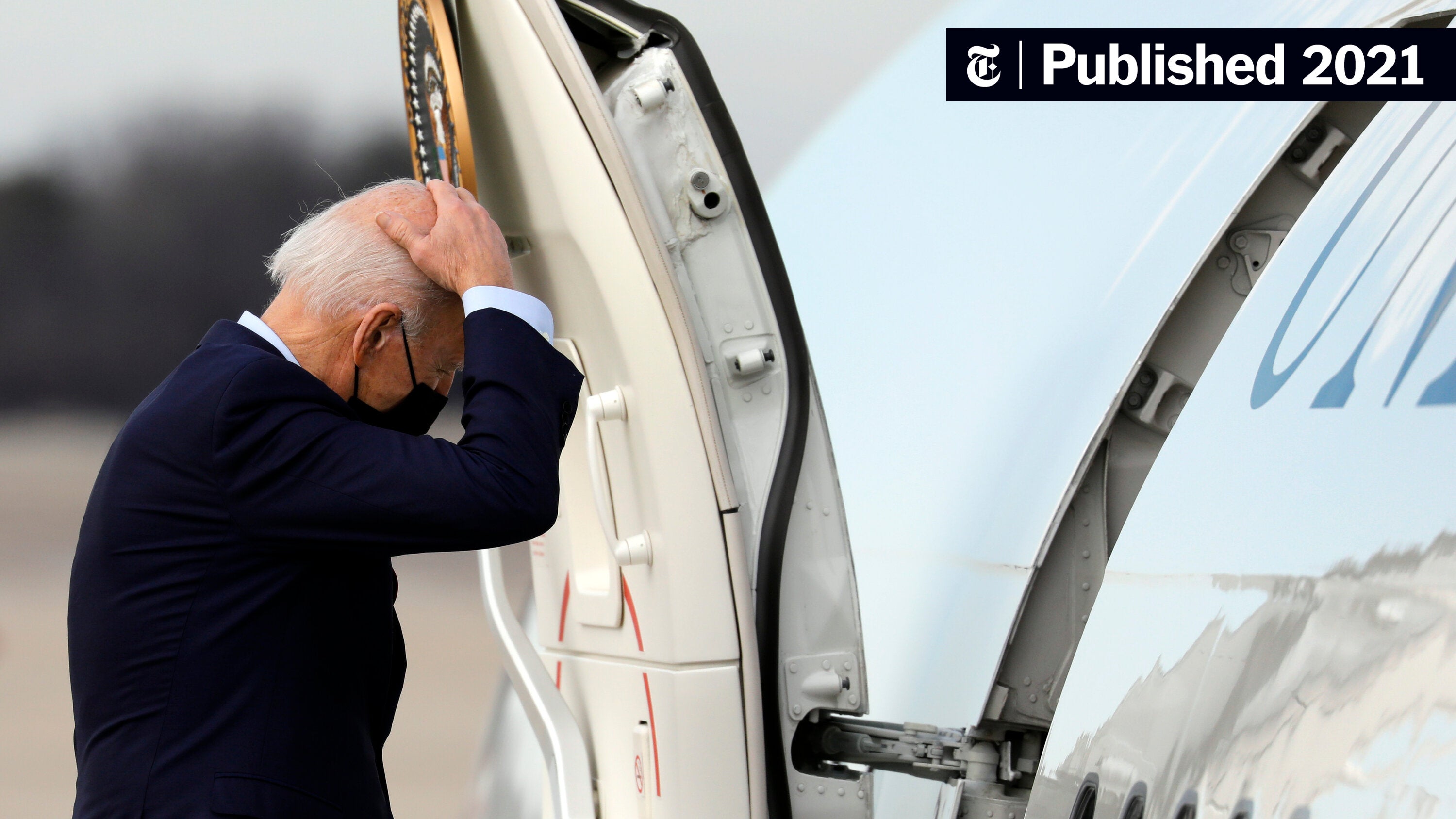Latest U.S.-Iran Nuclear Negotiations Conclude Without Breakthrough

Table of Contents
Key Sticking Points in the U.S.-Iran Nuclear Negotiations
The failure of the U.S.-Iran nuclear negotiations to produce a breakthrough stems from several fundamental disagreements. These persistent obstacles highlight the deep mistrust between the two nations and the complexity of achieving a mutually acceptable agreement. The key sticking points can be summarized as follows:
-
Sanctions Relief for Iran: Iran demands a complete lifting of all U.S. sanctions imposed since 2018, arguing they are crippling its economy and preventing its full participation in the international community. The U.S., however, favors a phased approach, linking sanctions relief to verifiable Iranian compliance with nuclear limitations. This disagreement on the scope and sequencing of sanctions relief remains a major hurdle.
-
Iran's Nuclear Enrichment Program: The extent of Iran's uranium enrichment program is a central point of contention. The U.S. seeks significant limitations on Iran's enrichment capacity, citing concerns about its potential to develop nuclear weapons. Iran insists on its right to enrich uranium for peaceful purposes, arguing that restrictions infringe upon its sovereign rights. This clash over enrichment levels and verification protocols is crucial to any future agreement.
-
Verification Mechanisms for Iran's Nuclear Activities: Ensuring effective verification of Iran's nuclear activities is paramount for any agreement. The U.S. demands robust and intrusive inspection mechanisms to prevent clandestine nuclear weapons development. Iran, however, is reluctant to grant extensive access to its nuclear facilities, citing concerns about national security and potential espionage. The level of access granted to international inspectors remains a critical sticking point.
-
Guarantees against Future U.S. Withdrawal from the Deal: Iran is deeply wary of future U.S. withdrawals from any agreement, as seen with the Trump administration's decision to abandon the 2015 JCPOA. They demand guarantees that future U.S. administrations will honor any commitment. The U.S., however, faces challenges in providing legally binding guarantees that transcend political cycles and potential changes in administrations.
-
The Role of Regional Proxies and Security Concerns: Beyond the nuclear issue, broader regional security concerns play a role in the negotiations. The U.S. is concerned about Iran's support for regional proxies and its ballistic missile program. These concerns are intertwined with the nuclear issue, making a comprehensive deal even more challenging to achieve. Addressing these wider regional security issues is vital for a lasting agreement.
Iran's Position and Demands in the Nuclear Talks
Iran's position in the nuclear talks is driven by a combination of economic necessity, national pride, and security concerns. Their main demands include:
-
Removal of All Sanctions: Iran sees the removal of all sanctions as a non-negotiable condition for rejoining the agreement. They argue the sanctions are unjustified and have severely harmed their economy.
-
Recognition of Iran's Right to Enrich Uranium: Iran insists on its right to enrich uranium for peaceful purposes, rejecting limitations that they perceive as an infringement on their sovereignty. This right, they argue, is essential for their energy needs and scientific advancements.
-
Security Guarantees against External Threats: Iran demands security guarantees against external threats, particularly from the U.S. and its regional allies. They want assurances that their nuclear program will not be targeted militarily.
-
Economic Benefits from the Deal: Iran seeks substantial economic benefits from a revived nuclear deal, including access to international markets and financial systems. This economic revival is considered crucial for their domestic stability and economic growth.
The U.S. Stance and Counter-Proposals in the Nuclear Negotiations
The U.S. approach to the negotiations emphasizes preventing Iran from developing nuclear weapons while also considering the need for de-escalation and regional stability. Their counter-proposals include:
-
Phased Sanctions Relief: The U.S. proposes a phased approach to sanctions relief, linking it to verifiable Iranian compliance with nuclear restrictions. This approach aims to ensure that Iran doesn't receive all sanctions relief upfront without demonstrable progress on the nuclear front.
-
Limits on Iran's Enrichment Capabilities: The U.S. seeks strict limits on Iran's uranium enrichment capacity and the type of centrifuges it can use. This aims to curtail Iran's ability to rapidly produce weapons-grade material.
-
Robust Verification Measures: The U.S. insists on comprehensive and intrusive verification measures to ensure Iran is not pursuing clandestine nuclear weapons activities. This includes robust access for international inspectors to Iranian nuclear facilities.
-
Focus on Preventing Nuclear Weapons Development: The U.S.'s primary goal is to prevent Iran from acquiring nuclear weapons. All other considerations are secondary to this key objective. This overarching goal shapes their approach to the negotiations.
International Implications and Reactions to the Failed Negotiations
The failure of the U.S.-Iran nuclear negotiations has significant international implications and has drawn reactions from various countries and international bodies:
-
Concerns about Iran's Nuclear Program: The lack of a deal fuels concerns about Iran's continued pursuit of its nuclear program, potentially bringing it closer to developing nuclear weapons. This raises worries among regional allies and international powers.
-
Regional Security Implications: The stalled negotiations heighten regional tensions, especially given Iran's support for regional proxies. This increases the risk of conflict and instability in the Middle East.
-
International Pressure on Iran: The international community, particularly the European Union, has expressed disappointment at the lack of progress. They are likely to continue to exert pressure on Iran to return to the negotiating table.
-
Reactions from the European Union, Russia, China, etc.: The EU, along with other P5+1 members (Russia, China, UK, France, and Germany), have expressed concern and called for a renewed commitment to diplomacy. Russia and China, in particular, have expressed their desire for a diplomatic resolution but may have differing strategic interests at play.
The Future of the Iran Nuclear Deal and Potential Scenarios
The failed negotiations leave several potential scenarios for the future:
-
Escalation of Tensions: Without a deal, tensions between Iran and the U.S. could escalate, potentially leading to military conflict or further regional instability.
-
Return to the Previous Deal: While unlikely in the near term, there remains a possibility of a return to the 2015 JCPOA, albeit with some modifications. This would require a significant shift in positions from both sides.
-
A New Negotiation Framework: A completely new negotiation framework could emerge, addressing some of the underlying concerns that prevented a breakthrough in the latest round of talks. This may require a fundamental change in approach by both parties.
-
Alternative Solutions for Containing Iran's Nuclear Program: In the absence of a comprehensive agreement, alternative approaches to containing Iran's nuclear program, such as increased sanctions or military pressure, may be considered. However, these options carry significant risks.
Conclusion
The latest U.S.-Iran nuclear negotiations have concluded without a breakthrough, leaving the future of the 2015 nuclear deal hanging in the balance. Key sticking points included sanctions relief, the scope of Iran’s enrichment program, and verification mechanisms. The failure to reach an agreement carries significant implications for regional stability and the international non-proliferation regime. The complex interplay of economic, political, and security concerns continues to hinder progress.
Call to Action: Stay informed about the evolving situation regarding the U.S.-Iran nuclear negotiations. Follow our site for updates and analysis on this critical issue and the future of the Iran nuclear deal. Understanding the complexities of the U.S.-Iran nuclear negotiations is crucial for comprehending the geopolitical landscape of the Middle East and the global implications of nuclear proliferation.

Featured Posts
-
 Tiga Warna Baru Jetour Dashing Debut Di Iims 2025
Apr 28, 2025
Tiga Warna Baru Jetour Dashing Debut Di Iims 2025
Apr 28, 2025 -
 Bubba Wallace Reflects On Racing Career Amidst The Joys And Challenges Of Fatherhood
Apr 28, 2025
Bubba Wallace Reflects On Racing Career Amidst The Joys And Challenges Of Fatherhood
Apr 28, 2025 -
 Espn Forecasts Red Sox 2025 Season Performance
Apr 28, 2025
Espn Forecasts Red Sox 2025 Season Performance
Apr 28, 2025 -
 Espn Pays Tribute To Cassidy Hubbarth On Her Last Show
Apr 28, 2025
Espn Pays Tribute To Cassidy Hubbarth On Her Last Show
Apr 28, 2025 -
 Cassidy Hutchinson Memoir Expected Release Date And Jan 6 Details
Apr 28, 2025
Cassidy Hutchinson Memoir Expected Release Date And Jan 6 Details
Apr 28, 2025
